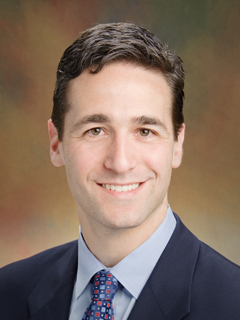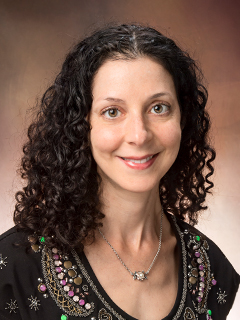HOW CAN WE HELP YOU? Call 1-800-TRY-CHOP
Inflammatory Bowel Disease Center
CHOP is a world leader in the diagnosis and treatment of inflammatory bowel disease (IBD), the fastest-growing autoimmune disorder in children. IBD describes a number of disorders that involve chronic inflammation of the digestive tract. Pediatric IBD often is harder to treat than adult-onset IBD. More than 1,800 children affected by IBD visit Children's Hospital of Philadelphia every year.
An experienced multidisciplinary team is increasing this Frontier program's size and scope to provide the most advanced care to pediatric patients with IBD. They also are researching new approaches that combine genomics and microbiome analysis to fulfill an unmet need for improved diagnostic modalities and therapeutics. One of the goals of this research is to provide a personalized medicine approach through combining next-generation sequencing and immunological studies to identify the genetic defects that may underlie patients' disease, particularly in the youngest children with this disease.
Here are some highlights of the IBD Center's research efforts:
- As part of a CHOP collaboration with industry partners, Robert Baldassano, MD, director of the IBD Center, and colleagues are testing a potential therapy that would be a first-in-class anti-LIGHT monoclonal antibody that binds excessive LIGHT (a pro-inflammatory protein) to help control excessive inflammation in pediatric patients with IBD.
- Research by Judith Kelsen, MD, director of the Very Early Onset IBD (VEO-IBD) Center, has identified some of the gene variants that appear to influence the immune system and may result in defective or inappropriate immune responses that contribute to the development of very early onset IBD. As a part of this work, a VEO-IBD panel has been developed and is widely available for use through the Division of Genomic Diagnostics at CHOP.
- Researchers are collaborating with the PennCHOP Microbiome Program to establish microbiota signatures of subsets of pediatric IBD, and then they are correlating these key communities of bacteria with patients' genetic variants to help select the most appropriate therapeutic options.
- The IBD Center offers an annual symposium "Personalized IBD and VEO-IBD: Genomics, Microbiome, Biologics and Beyond" featuring lectures and didactic sessions by nationally recognized leaders in the field.
The IBD Center received Frontier status in Fiscal year 2017.



